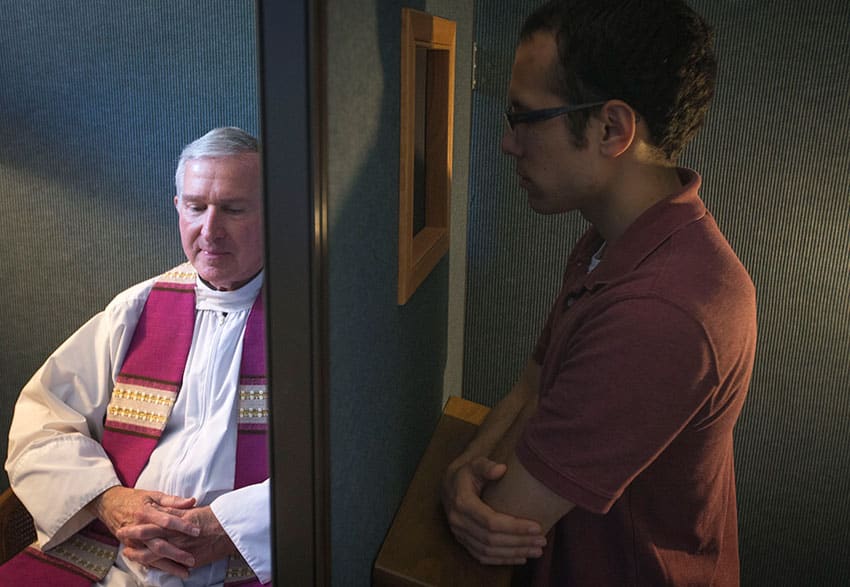
Australian Attorneys-General consider removing confessional privilege
The Council of Australian Attorneys-General has moved to consider introducing laws across the nation legally requiring priests to break the seal of confession in cases of child abuse.
CAG established a Working Group, led by NSW, at its most recent meeting in late June. Removing the confessional privilege was one of the 409 recommendations from the final report of the Royal Commission into Child Sexual Abuse in December 2017.
At the time, Federal Attorney-General Christian Porter said he supported the Commission’s recommendation and promised to help the states and territories harmonise their approach. The confessional privilege has since been removed from legal codes in the ACT, Tasmania and South Australia.
Last November, the newly elected Victorian Labor goverrnment promised to remove confessional privilege, but it remains on the books. It is still protected in NSW, Queensland and WA.
One repeated theme is how little legislators have communicated with either the Anglican or Catholic Church – the only two religions to practice confession – in drafting the legislation.
Bishop Greg O’Kelly, administrator of the Archdiocese of Adelaide, said that he was “blindsided” by the new legislation.
“There was no reference or no communication beforehand, neither at the level of the bishop or with the child protection unit,” he said.
It was only after the fact that the Archdiocese of Adelaide realised that its priests could face a fine of up to $7,500 for any failure to divulge what they had heard in confession.

When the ACT passed the Ombudsman Amendment Bill in June last year, removing the confessional protection, the Catholic Church was given a year to arrange how it would respond, but not consulted on the drafting.
Australian Bishops defend Sacrament Seal
Writing for the Catholic Voice archdiocesan publication in February, Archbishop Christopher Prowse said that while he welcomed moves to make reporting mandatory, confession was a “moot point”.
“Confessions are anonymous. Priests, unlike counsellors, do not take appointments. Confessors are generally unaware of the identity of the penitent because of the construction of the confessional room,” he said.
The ACT law came into effect on 1 July.
The Royal Commission rejected claims its recommendations supressed freedom of religion, saying that the right to religious practice was “respected” but not “absolute”. “The right to practise one’s religious beliefs must accommodate civil society’s obligation to provide for the safety of all and, in particular, children’s safety from sexual abuse.”
Whether removing the confessional privilege will enhance the safety of children has been widely questioned.
One barrister raised the point that confessions only requires the penitent to name the type of sin and the frequency, so “any evidence would lack sufficient detail to be of use to the police”.
“Moreover, there is an important public benefit in provision of confidential advice.
“Is it proposed to abolish legal professional privilege, or other forms of confidentiality associated with the provision of professional advice?” he asked.
One surprising voice of defence for confession came in the form of mainstream journalist Waleed Aly, who said that legislation simply would not work as the priests would not accept it, outlining the problem in a piece for the August 2018 New York Times:
“South Australia has set the punishment for failing to report abuse at a maximum of about $7,500. Who are these priests who value their spiritual salvation about as much as they might value a second-hand car?” he asked.
He concluded that, “whatever power the state possesses, it cannot simply rewrite Canon Law, and it cannot legislate away people’s religious convictions, however much it might want to.”
The Royal Commission on agenda at Australian Bishops’ Ad Limina
Australia’s bishops have recently concluding their Ad Limina visit to the Vatican, where the Royal Commission was one of the main items on the agenda.

On 1 July, Pope Francis insisted on the Catholic commitment to the confessional seal.
The document ordered by the Pope repeated the teaching of Canon Law that the seal is “inviolable”, and that it was “absolutely forbidden” for a confessor to betray a penitent “in any way” and “for any reason” (Can. 983 §1.) .
It also denounced any policy or legislation which would force a priest to break the seal as “a violation of religious freedom” including the “freedom of conscience.”
“Breaking the seal would be tantamount to violating the poor who is in the sinner.”
The CAG Working Group has been tasked with reporting back to the Council at the end of September.
Related links:
- Confession must never be violated, says Vatican
- Challenges to Confession seal attributed to abuse scandals
- Priestly martyrdom to uphold confession isn’t new
